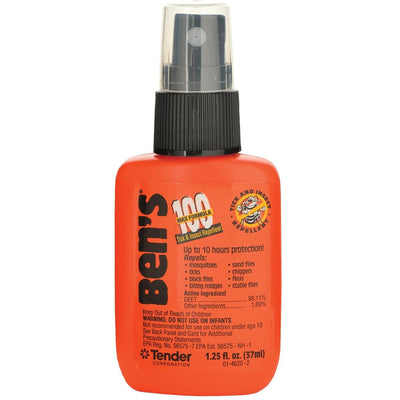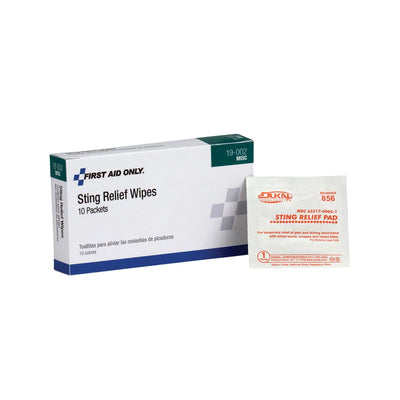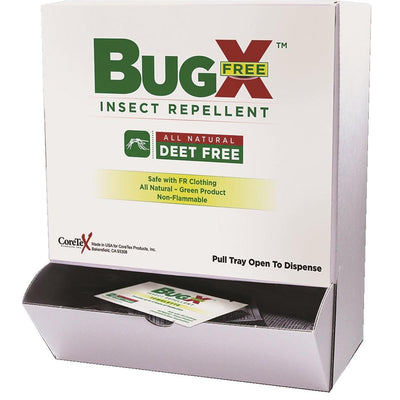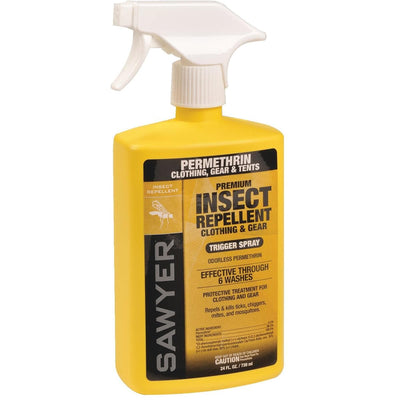Be Wary of Insect Bites and Stings
Here are some key points.
- Avoid rapid movements near bees. Don’t slap at them or swat them.
- Wear a long-sleeved shirt, long pants and socks outdoors.
- Immediately get medical help if you or a co-worker have a severe reaction to an insect bite or sting.
Be on the alert for insects
- Warm weather presents certain dangers, especially for workers who spend most of their time outdoors.
- Among these dangers are certain insects that bite or sting, including spiders, mosquitoes, ticks, bees, wasps and hornets.
- You can reduce your risk of insect bites by wearing long-sleeved shirts, long pants and socks when you’re outside. Insect repellents will also help.
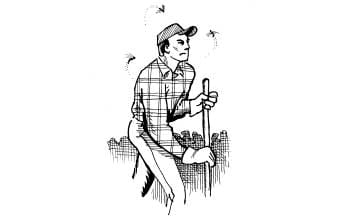
You can reduce your risk of insect bites by wearing long-sleeved shirts, long pants and socks when you’re outside. Insect repellents will also help.
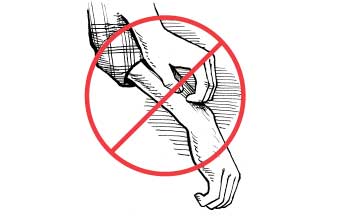
Avoid scratching insect bites.
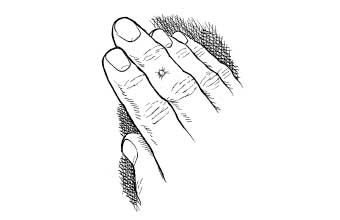
Ticks are small insects that feed on a person’s blood.
Bee stings
- Thousands of people are stung by bees each year. In most cases, a bee won’t sting you unless it is provoked.
- If bees are nearby, avoid rapid movements. If a yellow jacket, wasp or hornet lands on you, don’t slap it or swat at it. Instead, try to blow or gently brush it away.
- If you are stung, remove the stinger from your skin as quickly as possible. Don’t grasp the stinger with your fingers or a tweezers. Instead, gently scrape the area with your fingernail or try to remove the stinger by scraping with the edge of a knife.
- In most people, a bee sting will result in localized pain, swelling and redness for about 48 hours. Wash the area with soap and water and apply a cold pack to reduce the swelling. See a doctor if your symptoms worsen or persist.
- Some people are severely allergic to bee stings, which can be life-threatening or even fatal.
- Immediately contact our local emergency medical services if you or a co-worker are stung and break out in hives, have trouble breathing, become dizzy, vomit, get stomach cramps or diarrhea, or have any other severe reaction.
- If you have had a severe reaction to an insect sting in the past, immediately notify your supervisor and seek medical attention.
Mosquito and spider bites
- Bites from mosquitoes and most spiders generally don’t cause serious harm, unless you’re allergic to spider venom.
- Avoid scratching bites. Instead, wash the area with soap and water and apply a cold pack if needed to reduce swelling. Ointments such as calamine lotion will also help reduce the itchiness.
- Immediately contact our local emergency medical services if you or a co-worker show signs of a severe reaction to a bite.
Tick bites
- Ticks are small insects that feed on a person’s blood. Tick bites are painless, so a tick may remain imbedded in your skin for days unnoticed.
- The best way to remove a tick is to use a small tweezers to grasp it where its mouthparts enter the skin. Tug gently but firmly until it releases its hold on your skin. If you can’t get it out or if its mouthparts remain in your skin, seek medical care. Wash the bite area with soap and water.
- Some deer ticks carry Lyme disease, which can be very serious if untreated. Deer ticks (much smaller than Hard (Dog) Tick) typically found in wooded and grassy areas. Wear a long-sleeved shirt, long pants with the cuffs tucked into your socks, and a hat when you’re in these areas. Insect repellents may also help.
- If you have been bitten by a tick and show any of the following symptoms, be sure to see a doctor: a rash or red patch, especially one that slowly expands over several days; fatigue; a mild headache; pain and stiffness in your muscles and joints; a slight fever; or swollen glands.
More tips
- Avoid bright-colored or floral print clothing, perfume, hair spray, floral-scented shampoos, soaps and deodorants.
- Pay close attention to open soda containers and glasses.
- Keep trash containers closed, and clean up after eating outdoors.
- Apply a cold pack to reduce discomfort if you have been bitten or stung.
Stinging & Biting Insects Do’s and Don’ts
Do
- Check for stinging insects near flowering plants, trash cans and outdoor eating areas.
- Run away if you are attacked by several stinging insects at the same time. Try to get indoors.
- Immediately seek medical help if you have a severe reaction.
- Leave a co-worker who has been stung alone. The person could have an allergic reaction.
- Walk barefoot outdoors.
- Leave a stinger in your skin.
When you’re ready to work safely, you’re ready to work. See our full line of safety supplies, including respirators, eye and ear protection, coveralls, first aid and more.






